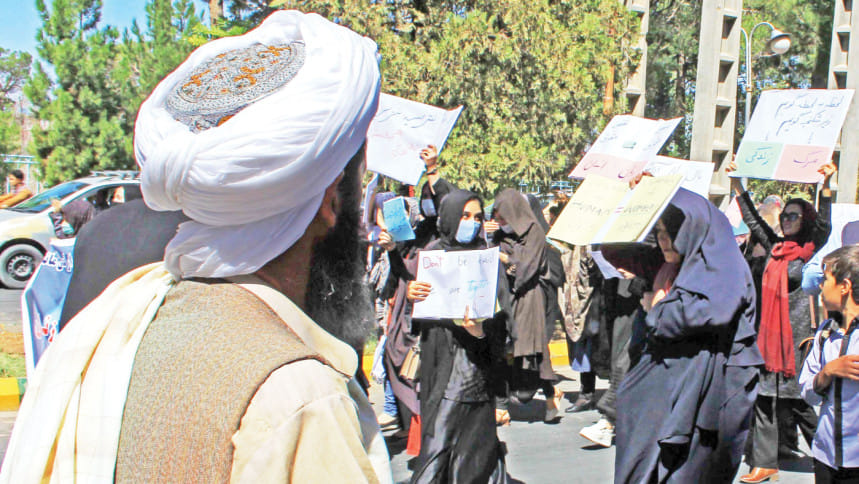‘Feelings of pain and anger’

Most Afghan allies seeking to flee with the US withdrawal were unable to do so, an official acknowledged Wednesday, as the United States began to wrestle with painful choices in the chaotic final days of the war.
President Joe Biden's administration says the victorious Taliban have promised to keep letting Afghans leave -- but many who worked for the United States over its 20-year mission fear retribution.
"These have been incredibly emotional and trying days, and indeed years," said General Mark Milley, the top US military officer.
"We are all conflicted with feelings of pain and anger, sorrow and sadness, combined with pride and resilience," he said.
A senior State Department official vowed to keep working to help everyone leave.
The United States in the final days of the war airlifted more than 123,000 people out of Kabul's airport, including US citizens and interpreters and others who supported the US mission and are eligible for a special visa to immigrate.

Biden has hailed the airlift as unprecedented, but the State Department official acknowledged that most Afghan visa applicants and their families did not make it.
"I would say it's the majority of them," the official said.
He declined to give exact numbers. The White House said in early August that some 20,000 Afghans were seeking to emigrate through the visa program, meaning more than 100,000 people when including families.
The chaotic end to America's longest war has sparked the biggest crisis of President Joe Biden's seven months in the White House, finger-pointing within the administration and questions about who, if anyone, would be held responsible.
For months, military officials had urged the US State Department to convince other countries to take Afghans at risk from Taliban retaliation. They had largely failed to secure agreements with other countries, prompting officials across the US government to rush to try to find space for the evacuees.
Frustrated and angry, officials at the Pentagon have privately blamed the lack of urgency leading up to the airlift on the State and Homeland Security departments, who in turn have blamed the White House for slow decision-making.
"Finger-pointing is an ugly Washington sport ... in this case, fingers could be pointed in all directions and probably be right in each case," said Dan Fried, a former senior US diplomat now at the Atlantic Council think tank.
"A failure like this is collective. Everybody screwed up," Fried added.
Some Republicans have pointed fingers at Sullivan and Secretary of State Antony Blinken as the ones most responsible for setting the conditions for a chaotic evacuation, and have demanded their departure.

 For all latest news, follow The Daily Star's Google News channel.
For all latest news, follow The Daily Star's Google News channel. 



Comments